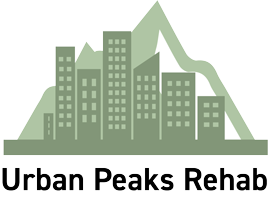Recovery requires a safe and empathetic community that can help people rise above the disease of addiction. Having relationships and social networks that provide friendship, love, hope and support can be a huge part in attaining and maintaining sobriety. Many times, this includes family, friends, doctors, recovery groups, churches and others who are able and willing to support the wellbeing of the person struggling. It is important to note that every person is different in their community-based needs, and what may work well for one person may be harmful to the next. Community based recovery leads to a sense of belonging and empowerment and creates a network of recovering communities for mutual support and resources.
Belonging
Even without addiction, a huge requirement for living a fulfilling life is finding a sense of belonging in the world. Addiction can be a lonely disease; isolating the person and making them feel as though they don’t fit in. A I feel like valuable isn’t the word I would use but I also can’t think of a replacement work approach to recovery is to experiment with different groups, pathways or volunteering to help find that sense of belonging. Researchers have found a very strong link between successful recovery and philanthropy if we are going to mention philanthropy we may want to list some ways to give back. Through these activities, it becomes easier to meet and connect with other people who have a similar vision for their lives.
Empowerment
Recovery is a fantastic opportunity to change our thinking. Instead of feeling like a victim to our addiction, it gives us the chance to explore our lives in detail. Not simply our external life, such as our jobs, friends and goals-but also our inner lives-our thoughts, our beliefs, and our choices. Recovery must include a physical healing of our bodies and a psychological healing of our minds as well. Empowerment is the power to create (or recreate) your own life, the way you want it, and act on your own authority. Personal empowerment can lead the individual to become more aware of their personal strengths and weaknesses, feel better prepared to face problems and achieve their goals, take control of their own circumstances, and find meaning and fulfillment in their life.
Network of recovering communities for mutual support and resources
Every population has its own network of resources available to those who are struggling with addiction. Many times, the best place to access these resources is through other people in recovery. Whether it be finding the best place for treatment, creating an fun activity for those in recovery, or just going to coffee with someone to talk about a hard day- reaching out and allowing yourself to be a part of a community helps to lessen the burden of addiction and creates new perspectives for solutions. There is no shame in asking for help, in fact, it may strengthen another person’s recovery by allowing them to feel that they are helping other people.
